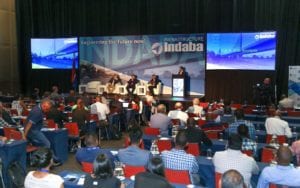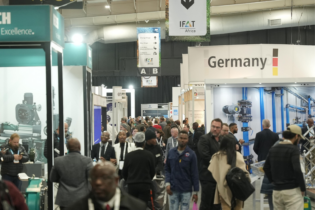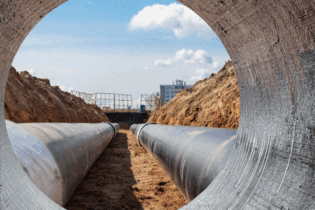Industry awareness supporting clients with procurement, planning, capacity and technical competence while focusing on ‘value for money’ infrastructure development are all key focuses for Consulting Engineers South Africa (CESA) in 2019.
Neresh Pather, President of CESA spoke about these focus areas during his keynote address at the 8th Annual CESA Infrastructure Indaba, currently underway in Durban. Pather applauded President Cyril Ramaphosa’s commitment to dialogue and working together with the private sector as we all need to take ownership and accountability for the future focusing on ‘doing what is right’ through effective, ethical leadership. Pather called on government to set up a Presidential Advisory Committee of Infrastructure and Built Environment Experts to ensure ‘value for money’ procurement as the current practice of lowest cost procurement of professional consulting engineering services is clearly not working. This can be seen with the current debacles at ESKOM as well as other state-owned entities, where total cost of ownership that includes maintenance over the lifecycle of an infrastructure project that should last upwards of 50 years has not been taken into account.Day 1 take-aways
The first day of the CESA Infrastructure Indaba saw a wide variety of presentations from industry stakeholders all aimed at ‘Engineering the Future now!’ Economics and infrastructure David Metelerkamp, senior economist from Industry Insight, who spoke on the topic ‘Drive for Infrastructure Investment’ stated that the South African economy has been dealing with a lost decade only managing growth of 1,8% p.a. between 2008 and 2018, with the construction sector consistently under-performing. “Reforming our state-owned entities is crucial for the transformation of the construction sector noting that the restructuring of Eskom is a step in the right direction,” he said. Talking about the newly created Infrastructure Fund, Metelerkamp stated, “Treasury wants to step up their infrastructure build programme – partnering with the private sector, development banks, development financing institutions to create this fund but legislation still needs to be passed to facilitate the process, added to which Treasury is very short on specifics regarding this infrastructure fund.” He concluded by stating that although there are some signs of private sector activity there is no big turnaround expected anytime soon in the construction sector fueled by the public sector dragging on growth with respect to spending and that there has been a 50% decline in the value of tenders awarded in the past 2 years.Infrastructure projects
The second session on Risk Analysis – Capital Intensive Infrastructure Projects started with a presentation from Ricardo Pillay, Director at LNP Attorneys, entitled ‘Understanding the value for money proposition to alleviate procurement risks’. Pillay said that the process for maintaining or enhancing value for money through procurement requires a strategic approach optimising whole-of-life value for money using an approved procurement procedure while allocating and managing risk appropriately and proactively managing contract delivery as well as monitoring performance. Chris Campbell, CESA CEO focused on ‘The Unintended Consequences of Tendering for Consulting Engineering Services’ asking the question should we not be considering a different procurement mechanism for the various components of infrastructure development? He went on to state, “Quality Based Selection is global best practice best practice for the appointment of Consulting Engineers. The open tender process unfortunately creates opportunities for abuse through the appointment of companies without track record who are unable to deliver and creates opportunity for ‘tenderpreneurship’ and corruption. Campbell concluded, “We are unapologetic in our belief that the South African public deserve the best and most competent professional service providers and anyone wanting to play in this space must fit this profile and be committed to growing a respected and sustainable industry”. Dr Steven C.Y. Kuo from the University of Pretoria’s Gordon Institute of Business informed the audience that “African governments are the owners of the projects and that China is the main funder and contractor”. He stated that political risk analysis and management lies not in political connections, having lots of contacts across Africa or speaking different local languages – it is more about an organization’s preparedness for doing business in Africa. Water and energy During the third session for the day focused on Water and Energy Security, Msizi Cele from Umgeni Water discussed ‘The role of engineers in addressing water sustainability’ followed by Sibu Mvana from Aurecon focusing on ‘The role of technology in infrastructure development followed by Dr Thulani Dlamini from the CSIR, discussing ‘The role of engineers in the global climate action’. Transforming the industry The 4th and final session for the day dealt with the Transformation Journey – Beyond the Scorecard facilitated by Professor Willie Chinyamurindi from the University of Fort Hare who also gave a presentation on ‘Working towards a rainbow sector’. Clint Koopman President of SABTACO in his presentation asked the audience ‘Transformation: Are we there yet?’ Shamiso Kumbirai the CESA 2018 Young Engineer of the Year rounded off the session by focusing on ‘Enterprise development in consulting engineering’.






